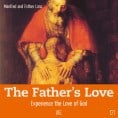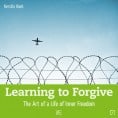
I recently read about Jess and Tim, two New Yorkers that have been friends for years. They asked themselves whether they could fall in love if they spent time with each other every day for 40 days. So they began the experiment “40 Days of Dating,” and told about it in a Blog. (For those of you who are curious, they fell in love – and it remained complicated).
One thing that really moved me, other than the cool and unique idea, was that every evening they would ask themselves:
– What new things have I learned about the other person?
– And about myself?
I think these questions are exciting and great. First of all because the reflection surely helped them to keep things in their memories that otherwise would easily be forgotten. It often wasn’t the “big” things that they noted, but rather small ones: his shopping behaviors, her smile, something that they learned about the other person’s childhood, and much more.
I thought to myself: I could try this. Not necessarily with a man, but with life itself. To ask myself every evening for a while:
– What new thing have I learned about life?
– What have I learned about myself?
And share the answers with you (perhaps not daily, but some evenings).
This is also similar to the spiritual practice of asking yourself every evening: When was I most alive today? And when least? (A great book on this topic: Sleeping with Bread)
This is also a bit of self-care for me. At the moment, I have a ton of things to organize and manage. First, for the publishing company. But I also have to make daily decisions and organize things for the ship project. And then the lecture season with seminars and events across Germany begins next week. In times like this, the danger is high that one will forget to enjoy life; to notice the small, beautiful moments of daily life. For this reason, I would like to really pay attention to this, especially because so much is going on right now.
Current/Yesterday
– What new things did I discover about life?
A man that I’ve known for a long time told me about a practicum in an industrial enterprise, shift work, and sandblasting. I know him primarily from working together in committees and prayer-actions. To hear about his experiences in a completely different area of life brought us closer together. I found this valuable and pleasant.
– What new thing did I discover about myself?
It is not easy for me to concentrate on only one thing for a long period of time. As we prayed yesterday on the ship that God would give his blessing, I prayed with my whole heart… and occasionally cut away (with bolt cutters) rusty screws that I noticed when I opened my eyes. For me, this was the perfect mixture of concentration.
I invite you to participate and to tell in a comment about a moment that you experienced when you felt really alive.
– See more at: http://kerstinpur.de/erlebnisse/leben-entdecken-ein-experiment/#sthash.cEbNtRJD.dpuf
 – Was I alive today?
– Was I alive today?

 sible is not a feeling. This might surprise you because “feeling responsible” feels like a real feeling. Yet, when we examine it carefully, this feeling is made up of two parts: -the thought: “I think I am responsible.”
sible is not a feeling. This might surprise you because “feeling responsible” feels like a real feeling. Yet, when we examine it carefully, this feeling is made up of two parts: -the thought: “I think I am responsible.”


Recent Comments